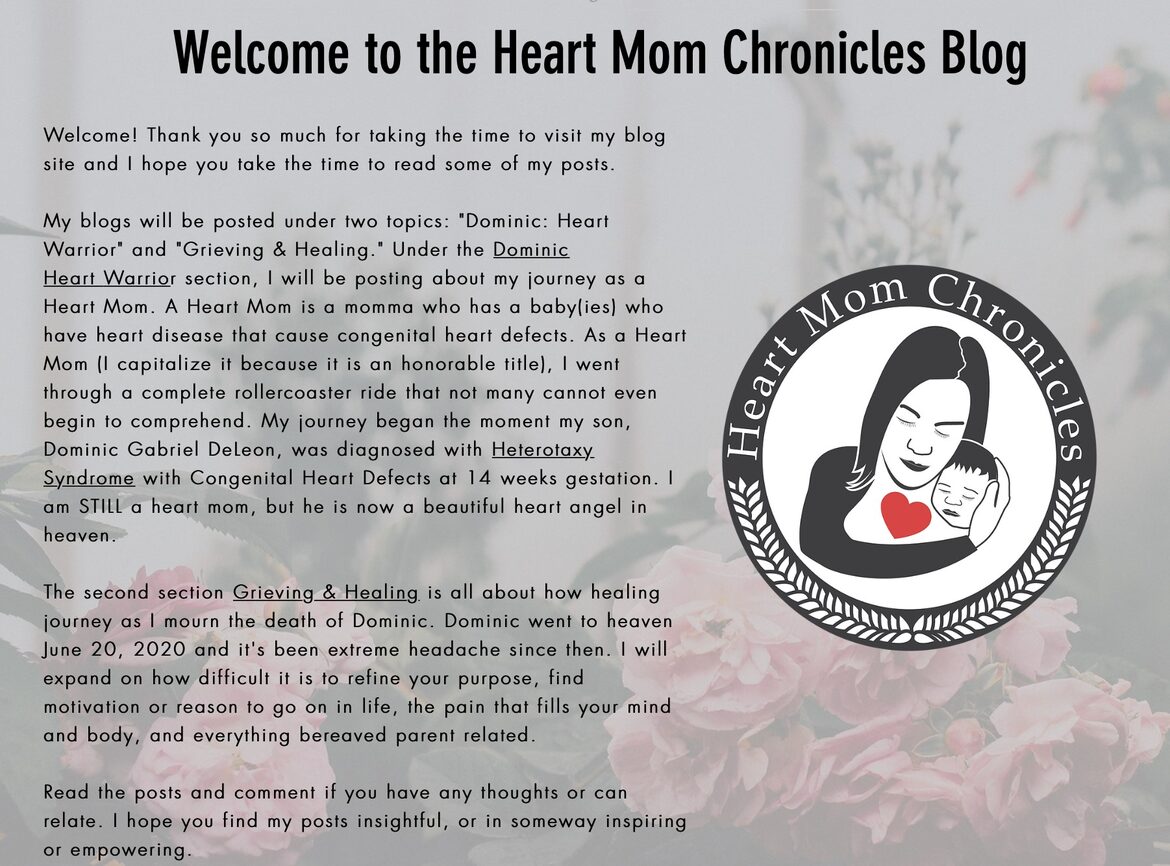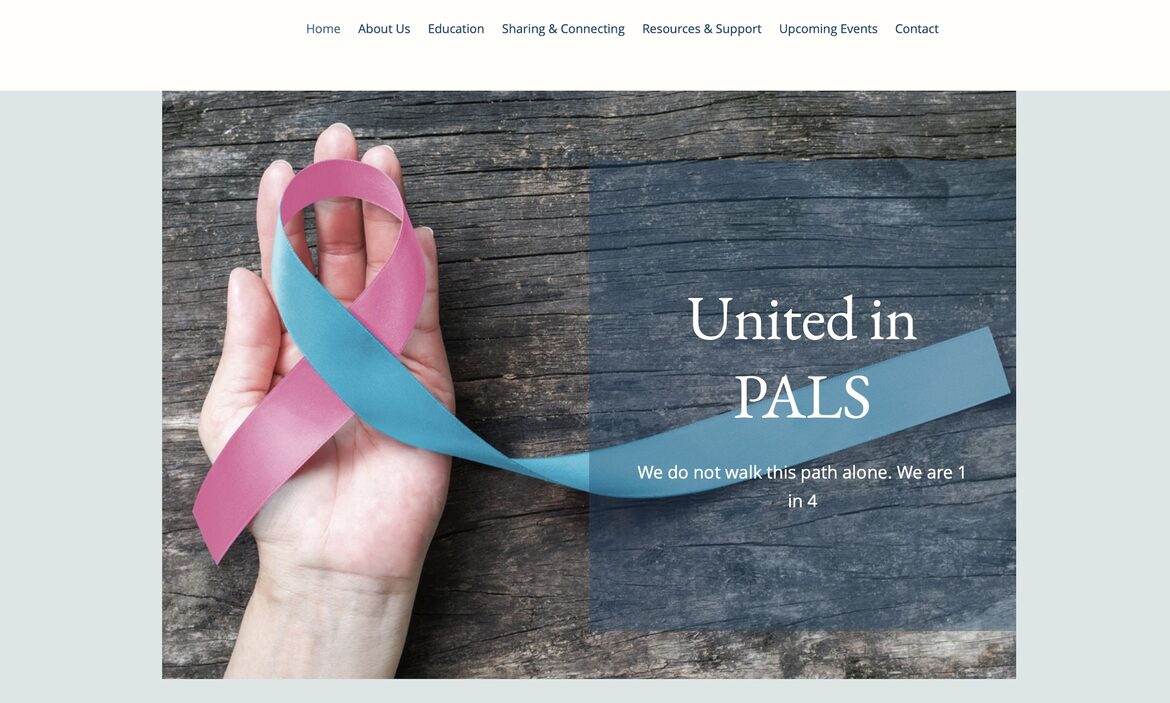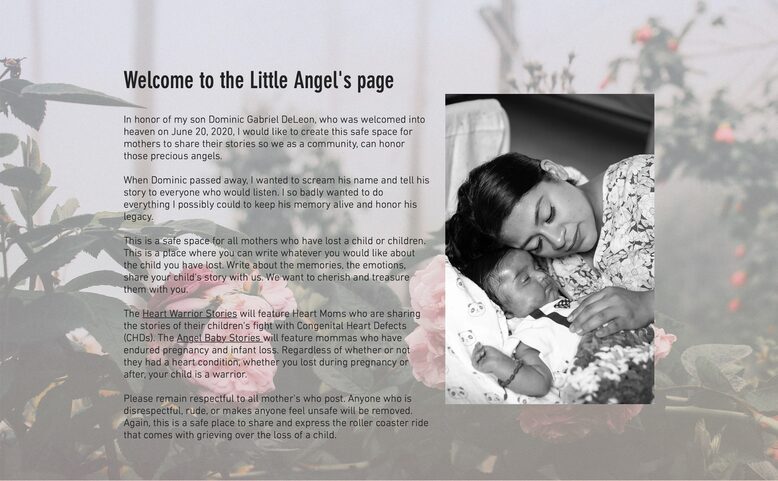The Writer Heals and Blooms in the Midst of a Storm
Raquel L. DeLeon
Keywords: infant loss; medical trauma; Latinx; depression; PTSD
Categories: Navigating Loss and Grief; Place-Making and Space-Taking on Social Media; Disability, Illness, and Survival (When the World Doesn’t Want You To); BIPOC Perspectives on Labor and Love during COVID; Somewhere in Between: Grad Student Perspectives
Content warning: infant loss, depression, PTSD
Leah Lakshmi Piepzna-Sanarasinha’s Care Work: Dreaming Disability Justice presents a series of stories that are focused on achieving social justice and destroying ableism She explores the “realities of disability justice” and is focused on bringing the community together to build powerful and resilient communities, where nobody is left behind. This spoke to me because during the COVID-19 pandemic, I continued to experience hardship that negatively fueled my existing history of trauma, in turn, affecting me emotional and mental health, as well as my ability to write and be a “typical” student in my doctoral program.
During the COVID-19 pandemic, on February 17, 2020, I gave birth to a sweet baby boy, Dominic Gabriel DeLeon with congenital heart defects. His condition didn’t come as a surprise, given that we discovered his diagnosis at 16-weeks’ gestation. My husband, dog and I all relocated from Kalispell, Montana to Aurora Colorado to deliver our son and receive the medical treatments he needed, including a series of open-heart surgeries. While in Colorado, a month after our son was born and had his first open heart surgery, I received my acceptance letter to the Rhetoric and Technical Communication PhD program at Texas Tech University. As an online program I thought to myself “this is perfect! I can stay at home, take care of my medically complex son, and not have to constantly leave him to go to classes.”
Dominic’s diagnosis was very complex. He had Heterotaxy Syndrome with several congenital heart defects. Heterotaxy syndrome is a condition in which the internal organs are abnormally arranged in the chest and abdomen. The term "heterotaxy" is from the Greek words "heteros,"
meaning "other than," and "taxis," meaning "arrangement." We didn’t know the full extent of his CHDs (Congenital Heart Defect) until he was born. Dominic had: Dextrocardia (rare heart condition in which your heart points toward the right side of your chest instead of the left side); asplenia (absence of spleen); microgastria (underdeveloped/small stomach—2X too small for Dom); unbalanced AVSD (holes between the chambers of the right and left sides of the heart, and the valves that control the flow of blood between these chambers may not be formed correctly); TAPVR (rare congenital malformation in which all four pulmonary veins do not connect normally to the left atrium. Instead, the four pulmonary veins drain abnormally to the right atrium (right upper chamber) by way of an abnormal [anomalous] connection); and a midline liver. We knew very early on that he would be lucky to see 5 years of age.
Dominic unfortunately went into cardiac arrest on June 6, 2020, while we were inpatient to treat a skin infection he developed around his J-tube. After the longest 14 days of our lives and the doctors doing their best to find the best way to safely disconnect our son from life support, we found that Dominic had suffered so much brain damage and his organs had been so affected, that he was no longer a heart transplant candidate. Which he needed to even have a resemblance of a decent life. Eventually, we ran out of options to save him, and we said goodbye to our son on June 20, 2020. We laid our son to rest at four months and three days old. After collecting his urn, gathering all our medical documents, and then packing out things to head back to Montana, we were back by the end of June and then I realized “I start school in less than 2 months.”
I had very little time to collect myself. The semester would begin on August 24, 2020. I not only struggled with the grief I was experiencing with the loss of my child, but with my mental and emotional health due to my post-traumatic stress disorder and heightened depression, and anxiety.
Being a student during the pandemic, while enduring the loss of a child came with significant challenges. Becoming a student was a way of looking forward to the future. I didn’t want my mental illnesses to hold me back or make my professors think that I was unable to live up to the expectations of a graduate student because of my grief. I feel like being a student with mental illnesses has been an uphill battle. Struggling with my social anxiety, my crippling depression, that has affected my ability to focus, stay on task, memory, and ability to communicate my needs to my professors.
Before I began my first semester at my PhD program in Rhetoric and Technical Communication, I began to brainstorm on ways that I can combine my educational background and my desire to keep my son’s memory alive. I didn’t want his death to be in vain. Before his passing, I had already shared a significant amount of our journey through social media. And now I had a fueled passion to become a serious advocate for Congenital Heart Defects. This is what brought me to create Heart Mom Chronicles. A blog that focused on my journey as a heart mom, while Dominic was alive, as well as my journey in grieving and healing through storytelling.
 |
As I began to design my website, I thought of the amount of women who didn’t have a safe place or platform to share their stories, too. So, I created a section on the website where mothers in the pregnancy and infant loss community, both inside and outside the heart community (parents who have lost to CHD), can share their stories. As hard as it was to read their stories, it made my heart so happy to see all their children’s beautiful faces on my blog. Their names being permanently written on a website that would keep their memory alive.
|
|
As I began my journey as a doctoral student, I kept my passion for being a CHD advocate and continuing my storytelling to work through my grief close to my class-related projects. For example, in my Grants for Non-profit Organizations course we had to choose two clients to write grants for. I then posted on my “Heart Moms” group if anyone had a non-profit organization, they wanted help with grants. Many replied and it was so difficult to choose, but I ended up writing two grants for two organizations that were built on the memories of two beautiful children who fought against CHD but unfortunately left for heaven.
Another example is when I wrote a consulting piece for a non-profit organization called Conquering CHD. For my Technical Communication in Corporate, Health, and Government websites course I analyzed the rhetoric of the website and evaluated the strength and weaknesses; evaluated how they were measuring their success and achieving their mission objectives and goals; and how they can continue to improve their website design, as well as overall improving their users’ experiences when interacting with their website. In the beginning of the class, we were given the choice to select any government website or non-profit organization, but my choice was personal.
Conquering CHD is a non-profit organization, whose mission statement states “We exist to conquer the most common birth defect. We engage, listen, learn, and act. We create visibility
and empower all impacted by CHD. We accomplish this through awareness, knowledge, community and research.” Conquering CHD’s website is expansive and exists to provide a platform that provides knowledge, resources, community events that create engagement, as well as a safe place to bring their stories about their CHD journeys to light; in turn, advocating for policy changes or implementations that continue to aid the CHD affected community. By addressing any existing or potential issues with their website, we can ensure that their message is being communicated clearly to whoever accesses the website, can navigate through the information with ease, and is able to see the value that Conquering CHD brings to their communities.
Entering the program, it felt like the odds of my success were stacked against me. Pandemic stress, mixed in with the imposter syndrome I experienced in a doctoral program, increased depression and anxiety related to existing mental health issues, mixed with the pain and grief from losing my firstborn child. There were a few times where I asked myself “what were you thinking?” Then I reminded myself that I applied to the program for my son. And I would keep going for my son.
As a doctoral student, I am focused on raising those around me. Demonstrating to my underrepresented communities that I, a first-generation, Mexican American, who struggles with their mental health, is making it through a PhD program during a pandemic. I plan to continue using my position of privilege as a doctoral student, to continue representing historically marginalized communities and giving them a platform to voice their stories. So not only was I focused on maintaining my passion for advocating for CHD and the pregnancy and infant loss community, but I wanted to continue pursuing my interests in publishing research.
I landed an opportunity to write an amazing research paper with one of my professors in my program and I was reminded of why I was in a PhD program in the first place. Writing brought me peace. Even during chaos, it allowed my brain to focus and become distracted with something completely outside of myself. Even if it was just for a little while. Our article responded to a need for social justice coalitional action to better support women of color in higher education, particularly first-generation college students who seek graduate degrees.
We utilized Royster and Ratcliffe’s concepts of “rhetorical listening” in response with/to Latinx women in higher education to confront “patterns of inequality and injustice [that arise as a] result of historical and systemic (in)actions that discriminate against and delegitimize the experiences of some groups” as noted in the call (Royster, 1996; Ratcliffe, 2005). We then decided to collect a series of testimonios, which would highlight Latinx women’s higher-education experiences— first-person stories designed to relay significant experiences so that others can learn by example. Testimonios reveal the resistance, resilience, and hope Latinx women engage in their research to collectively foster social justice. I had seen the power of healing through storytelling during my journey of grief, so why not continue to pursue the topic of storytelling in empowering Latinx students and allow their voices to be heard?
Losing my son during the pandemic has taught me a lot of things. One of them being the importance in recognizing my privilege in not only being alive and having my health, but the position and privilege I have as a doctoral student. I even designed a website for my user centered design course that focused on providing: a safe place and atmosphere for both men and women who have endured the loss of a child or children, through a pregnancy, infant loss, or any other loss, due to any reason; educational resources for bereaved parents to provide to family members and friends who may not understand the grief journey or not know how to
support the bereaved; and resources and support to bereaved parents themselves, where they may connect with other bereaved parents through social media groups, online virtual meetings, or find meetings nearby. Overall, I wanted to provide a non-judgmental and welcoming space where bereaved parents can share their stories of loss, where they can give/receive encouragement and love from other parents who may be going through and share a mutual understanding.
 |
As I progress through this program, I recognize I will continue to encounter more adverse circumstances. Especially now that I am going into my second year of my doctoral program. This fall, I have a full-time course load and I will have a two-month-old newborn to care for at home. After fall, I have 1 course left before I begin qualification exams. As I progress, will continue to blog my journey on Heart Mom Chronicles. I will continue to keep my passion for CHD and the pregnancy and infant loss community alive and integrate it into my coursework, and into my dissertation and published research. And through it all, I will continue to honor my son. I will not let my PTSD and depression defeat me.
References
DeLeon, R. (2022, May). Term paper: Technical communication in corporate health, and government websites: Conquering CHD. May 2022. Retrieved from https://drive.google.com/file/d/1xsM-BgwkcknIL3xdkXcCb5WlMBDf_jfk/view?usp=sharing
DeLeon, R. (2021, October). United in PALS. Retrieved from https://aderaiya22.wixsite.com/pals
DeLeon, R. (2020, August). Heart mom chronicles. Retrieved from https://www.heartmomchronicles.com
Bio
Raquel DeLeon is currently a third year PhD student in the Texas Tech University Rhetoric and Technical Communication PhD program. Raquel is heavily invested in research that revolves around social justice in higher education and healthcare communication. Raquel enjoys implementing usability techniques to study the effect of health communication, especially its effect on non-English speakers in English-centric environments, as well as promoting compassionate communication in palliative and comfort care settings. Raquel also utilizes storytelling methodologies, especially when exploring how Latinx students build coalitions in fighting back against injustices and oppressive behaviors in higher education. Raquel DeLeon is committed to using her own personal experiences during life to promote social justice and equality in healthcare and higher education settings.

